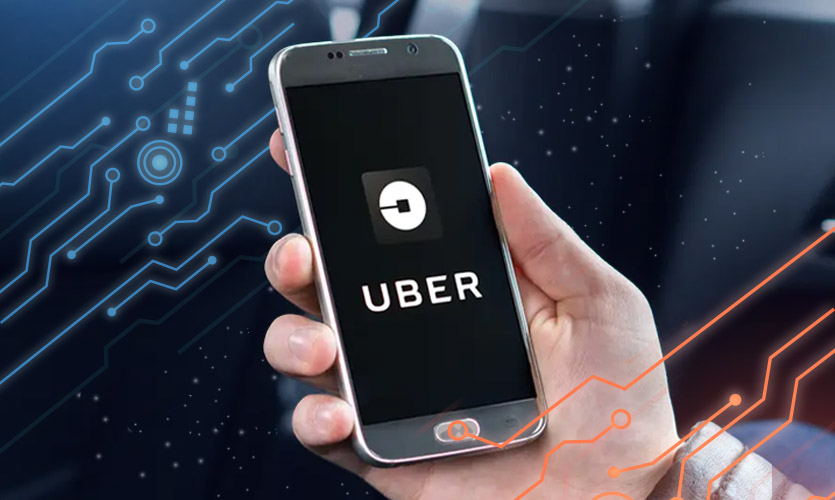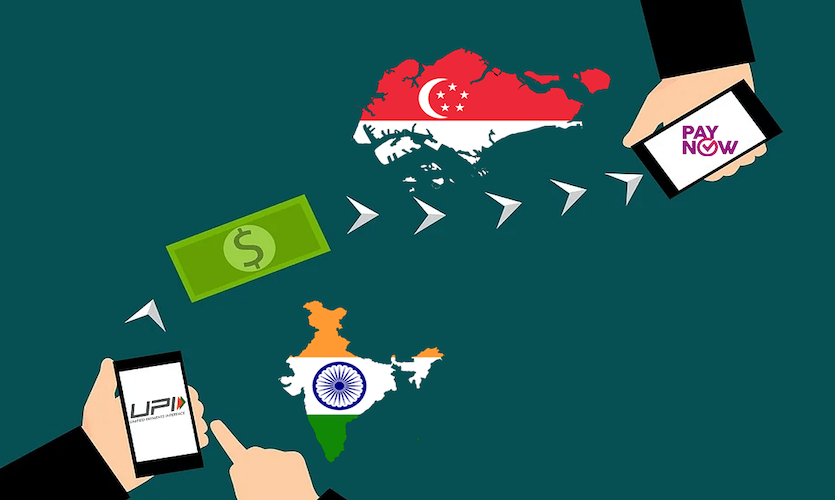Uber Files is a global investigation of 182 gigabytes of data obtained by the Guardian from an anonymous source, reportedly, consisting of 124,000 confidential documents from the ride-hailing giant. Subsequently, the data was shared with the International Consortium of Investigative Journalism (ICIJ), a non-profit network of journalists that is currently leading the investigation with the Guardian and has reporters working in nearly 29 countries.
According to the ICIJ, the files consist of sensitive texts, emails, invoices, briefing notes, presentations and other documents exchanged by top Uber executives, government bureaucrats and world leaders from almost 30 countries, between 2013 to 2017. The data from this leak reveals how Uber went from just another start-up in Silicon Valley, to the behemoth whose services span across more than 70 countries today.
The tech giant, founded in 2009 by Travis Kalanick in San Francisco, was able to storm into markets across the world by allegedly using “stealth technology”, evasive practices to bypass law enforcement, exploiting violence against drivers, deploying an army of lobbyists for governments and world leaders, and influence legislation to avoid taxes. While this was happening in the background, Uber was also facing media scrutiny at the forefront as Kalanick was forced to resign in 2017, amid sexual and psychological harassment, and privacy scandals at the company.
What Does This Data Leak Reveal?
The cache of 124,000 internal files, exchanges of nearly 83,000 emails, and over 1,000 other documents show how Uber has used unethical and potentially illegal methods to elbow their way into various countries where existing laws or regulations would otherwise hinder or make its operations illegal. One of the methods included aggressive lobbying against those laws and regulations till they were altered.
The investigation has brought to light the names of top politicians and officials that the tech giant had built connections with over the years, including French President Emmanuel Macron, senior campaign advisers of former US president Barack Obama, while also recruiting former public officials who appealed officials to drop probes, change policies on workers’ rights, draft new taxi laws, and ease background checks on drivers.
The cache also reveals more than 100 private and previously undisclosed meetings between 2014 and 2016, where the company’s top executives met with at least six world leaders, including Joe Biden who was the vice president of the United States at the time, and former Israeli prime minister Benjamin Netanyahu. Reportedly, with assistance from an advisory firm, Uber was able to prepare a list of 1850 “stakeholders” from different countries, which included public officials, bureaucrats, members of think tanks, and transportation experts.
Macron, who was France’s Minister of Economy, Industry and Digital Affairs at the time, had reportedly gone to great lengths to support Uber, while also campaigning to disrupt the country’s closed-shop taxi industry. According to sources, Macron had frequent exchanges with executives of the company and former CEO Kalanick, including telling the company that he had brokered a “deal” with its opponents in the French cabinet. Reportedly, Uber even sent Macron proposals for how they wanted ride-sharing services regulated in France.
The investigation revealed that Uber also tried to break into the Russian market by attempting to build ties with oligarchs close to Russian President Vladimir Putin. In China, Uber invested and met with several state-owned companies and local government officials, but ultimately lost to the local rival. In Saudi Arabia, the tech giant turned to Obama’s former adviser David Plouffe to push for favourable regulations, and in return, the company offered Princess Reema bint Bandar Al Saud a spot on Uber’s advisory board.
Reportedly, the senior executives at Uber also used a “kill switch” that would cut access to the company servers, in order to prevent police and regulators from accessing data during raids. They have supposedly used this protocol in six countries – Belgium, France, Hungary, India, Romania, and the Netherlands – at least 12 times. According to the ICIJ, other tactics also included giving the law enforcement fake versions of the app to hail “phantom cars” that never arrived. Uber also allegedly used “blackout geofences”, rendering the app useless in some locations like near police stations in Denmark.
According to the Guardian, the former vice president of the European Commission, Neelie Kroes, allegedly helped Uber in lobbying several top Dutch politicians, including the country’s prime minister. Furthermore, her relationship with the company was described as “highly confidential”, while the tech giant’s European lobbyist also warned that it “should not be discussed outside this group”.
The cache also revealed that at least six government officials from the UK, including then chancellor George Osborne, and Matt Hancock, who went on to become the health secretary, did not declare the secret meetings with Uber, where they were being lobbied by the company. Sources also uncovered an inside story of how Uber used its connections to the Conservative Party to lobby Boris Johnson and stop the introduction of new regulations in London.
The leaked communications also disclosed Travis Kalanick’s controversial statements as he personally ordered aggressive tactics to further the company’s expansion abroad. The anti-Uber protests in January 2016, which later turned violent across the European countries, were seen as an opportunity to leverage the violence faced by Uber drivers to garner public support, and pressurise governments into relaxing regulations.
“I think it’s worth it. Violence guarantee(s) success. And these guys must be resisted, no? Agreed that right place and time must be thought out,” said Kalanick in a message to other company leaders. Furthermore, he also called for a counter-protest and “civil disobedience” as a way to counter anti-Uber demonstrations in Paris.
According to reports, the company’s rapid expansion relied on subsidised drivers and discounted fares, which affected the local taxi industry, and they would “often (do so) without seeking licences to operate as a taxi and livery service”. The local taxi drivers saw this as a threat to their livelihood.
The investigation also found that similar tactics were deployed in countries like Belgium, the Netherlands, Spain, and Italy, where the company mobilised its drivers to file complaints with the police if they were attacked, supposedly to gain media coverage and concessions from the authorities.
The former CEO’s communications also revealed that he directly ordered the “kill switch” protocol to cut all access to Uber’s systems in an office in Amsterdam, during a raid by authorities. “Please hit the kill switch ASAP… access must be shut down in AMS (Amsterdam),” he wrote in an email to an employee.
According to reports, the company’s lobbying campaign also paid high-profile and leading academics in Europe and the US hundreds of thousands of dollars to produce reports that would further Uber’s lobbying efforts. The confidential documents leaked disclosed deals made with think tanks and university economists, who were asked to produce reports outlining the benefits of the ride-hailing giant in order to create a positive narrative. This included research on the benefits of the company’s economic model, and findings like how it created well-paid jobs liked by drivers, delivered cheap transport to consumers, and boosted productivity.
What Does The Probe Disclose About Uber’s Operations In India?
In December 2014, following the allegations of rape of a female passenger on an Uber driver in New Delhi, the company shifted the blame to India’s “flawed” licensing system that skipped background checks on drivers. The Uber Files revealed that while the company officially expressed shock and empathy, they were also working to create a narrative that would shift the blame on Indian authorities and government officials.
Following the incident, the top leadership of the company were sent an email by Uber’s Head of Public Policy in Asia, Jordan Condo, which read, “It is important that we show compassion and express our willingness to develop a longer term solution to stop this pandemic of violence against women in India.”
The email thread showed that while some executives did not respond, others such as Mark MacGann, former Head of Public Policy for Europe and the Middle East at Uber, wrote, “We’re in crisis talks right now and the media is blazing… The Indian driver was indeed licensed, and the weakness/flaw appears to be in the local licensing scheme.”
“We had done what was required in terms of the Indian regulations. However it’s clear the checks required for a driver to obtain a commercial license from the authorities now appear to be insufficient as it appears the accused also had some previous rape allegations, which the Delhi police check did not identify (in what’s called a ‘character certificate.’),” wrote Niall Wass, Uber’s Senior VP for Europe and the Middle East and Africa.
Another email sent by MacGann read, “We are in the process of platinum-plating our background checks in other regions, given the issue in India (where the official State system is at fault, not Uber).” This incident led to a ban on Uber’s services in Delhi, although it was lifted after seven months, following the intervention of the Delhi High Court.
The investigation also revealed that while the company abided by a government mandate and installed the panic button, it does not function in most Uber vehicles. In 2018, the Delhi government’s transport department mandated the installation of a GPS-linked panic button for all the cabs in the city. Reportedly, out of the 50 Uber rides booked in Delhi in a month, only two had a functioning panic button, while 29 did not have them at all.
The company also used the “kill switch” protocol in India, back in 2015, while it was under investigation and facing regulatory issues from the Reserve Bank of India, and other government authorities such as the Service Tax authorities, Consumer Courts and the Income Tax Department. This was indicated by an email thread dating back to February 2015, two months following the rape incident.
Who Is The Uber Files Whistleblower?
Amid the ongoing investigation of the 124,000 confidential company records, Mark MacGann, a career lobbyist and former Uber employee, came forward as the whistleblower who leaked the documents to the Guardian. MacGann was the former Head of Public Policy for Europe and the Middle East at Uber, between 2014 and 2016.
In a recent interview, he admitted that Uber was “not allowed, was not authorised, was not legal” in most countries under his jurisdiction. Furthermore, when questioned about Kalanick’s statement: “Violence guarantee(s) success”, he responded, “I think he meant that the only way to get governments to change the rules and legalise Uber and allow Uber to grow, as Uber wished, would be to keep the fight… the controversy burning.”
The former Uber employee also refuted allegations that he is not doing this out of vengeance against the company. He said that he believes “it’s the right thing”, and urged people to look at the facts that he is helping to expose. Additionally, MacGann also took accountability for his actions saying that he feels “partly responsible” for the lives of the Uber drivers, and that is his motivation for being a whistleblower since it’s about “making amends”.
“I own what I did, but if it turns out that what I was trying to persuade governments, ministers, prime ministers, presidents and drivers, turned out to be horribly, horribly wrong and untrue, then it’s incumbent upon me to go back and say, ‘I think we made a mistake,’” said MacGann during the interview.
Uber’s Statement Following The Media Investigation
On Monday, Uber released a statement admitting past “mistakes”, as the media investigation highlighted the company’s questionable and potentially illegal methods of expansion. The tech giant insists that under the leadership of current CEO Dara Khosrowshahi, since 2017, Uber “is a different company”.
“We have not and will not make excuses for past behaviour that is clearly not in line with our present values. Instead, we ask the public to judge us by what we’ve done over the last five years and what we will do in the years to come,” read the statement.
In response to the leak and subsequent probe, Jill Hazelbaker, Uber’s senior VP of public affairs, echoed how the company has changed under Khosrowshahi. “It’s also exactly why Uber hired a new CEO – Dara Khosrowshahi – who was tasked with transforming every aspect of how Uber operates,” she said. The statement added, “Dara rewrote the company’s values, revamped the leadership team, made safety a top company priority, implemented best-in-class corporate governance, hired an independent board chair and installed the rigorous controls and compliance necessary to operate as a public company.”
“There has been no shortage of reporting on Uber’s mistakes prior to 2017. Thousands of stories have been published, multiple books have been written – there’s even been a TV series. Five years ago, those mistakes culminated in one of the most infamous reckonings in the history of corporate America,” said Hazelbaker. She further admitted how this “reckoning” led to increased public scrutiny, high-profile lawsuits, several government investigations, and even termination of several senior executives of the company.
How Did Former CEO Kalanick Respond To These Allegations?
In light of this investigation, Uber founder and former CEO Travis Kalanick’s spokesperson Devon Spurgeon countered several allegations and accusations while denying these findings, and termed them a “false agenda”. Regarding the allegation that Kalanick tried to use the anti-Uber demonstrations to garner media coverage and ease regulations, Spurgeon said that the former CEO “never suggested that Uber should take advantage of violence at the expense of driver safety”.
In retaliation to the email that was allegedly sent by Kalanick, in which he ordered the “kill switch” protocol in Amsterdam, Spurgeon clarified that the former CEO “never authorised any actions or programs that would obstruct justice in any country”. He further added that Kalanick “did not create, direct or oversee these systems set up by legal and compliance departments and has never been charged in any jurisdiction for obstruction of justice or any related offence”.
Read more: Markets Wary Of Recession Despite World Stocks Rising









